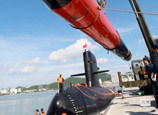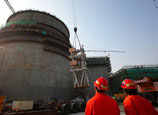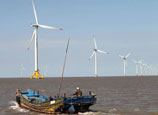
During the 18th National Congress of the Communist Party of China in November, Guo said that an increasing number of Taiwan's asset management companies will be welcomed to play a bigger part in the mainland securities market.
"Initial steps, such as underwriting stocks from the mainland, will be carried out in Taiwan," Guo said.
The pilot RQFII program is under the Economic Cooperation Framework Agreement, signed between the two sides of the Taiwan Straits to reduce tariffs and commercial barriers as well as tighten financial relationships, the commission said.
Some financial institutions in Taiwan have been granted RQFII licenses, according to the commission.
Guosen Securities Co Ltd noted that as investors from Taiwan directly participate in the mainland's capital market, financial ties between both sides are expected to tighten at a faster pace.
A report from the China News Agency said that Taiwan is also planning to ease the requirements for mainland companies issuing initial public offerings in Taiwan Stock Exchange.
Earlier this month, Guo looked forward to the likelihood that QFII and RQFII quotas will increase at least nine to 10 times.
This will be a huge capital injection into the mainland stock market compared with the current 80 billion yuan quota for QFII and 270 billion yuan for RQFII.
Jing Ulrich, managing director of global markets in China at JPMorgan Chase & Co, predicted that the QFII and RQFII quota expansion will likely speed up this year.
She said the QFII program may be ended after five or seven years, when the A-share market can completely open for the investors from all over the world.
"Currently, global investors are showing a more optimistic attitude toward China's stock market, as the economic growth is rebounding," said Ulrich.

















 Buildings collapse after subsidence in S China
Buildings collapse after subsidence in S China


![]()
